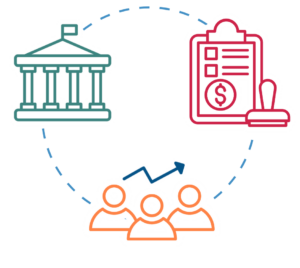
The Health Resources & Services Administration (HRSA) requires health center governing boards to ensure their centers deliver high-quality, patient-centered care to the communities they serve. Community representative board members are essential to this mission, bringing their communities’ voices and perspectives to board decision-making.
NCFH has been committed to health center board development for many years. This commitment is demonstrated through our comprehensive board training programs, governance resources, and partnerships with other National Training and Technical Assistance Partners.
This page provides comprehensive board governance resources including publications, templates, e-learning modules, short videos, discussion guides and trainings.
Custom Board Governance Training
NCFH provides tailored board governance training programs designed to meet your specific organizational needs. Our comprehensive curriculum covers:
For additional information or training requests, please contact training@ncfh.org.